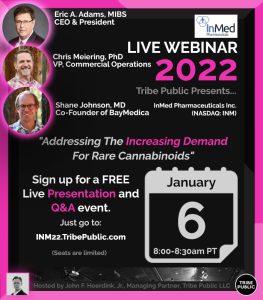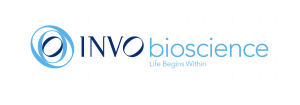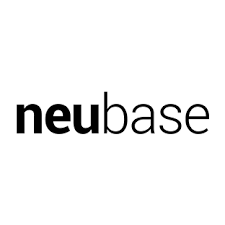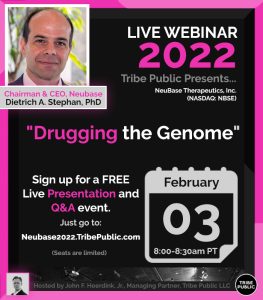Quote of the Day – “Surprise is the greatest gift which life can grant us.” – Boris Pasternak, Russian Novelist, January 29, 1890 – May 30, 1960
Unfortunately, Tuesday’s market session behaved and performed almost in complete contrast to Monday’s session where the markets flew higher and growth stocks were in fashion. Setting the tone and leading the market’s negative trajectory today was the Fed’s willingness to share their current sentiment about inflation. Indeed the Fed allowed one it’s brethren to leak out that she, the honorable Fed Governor Brainard, a FOMC voter, believed that Fed would move faster to fight the onslaught of inflation. The other pontificator, yet another FOMC voter, Kansas City Fed President Esther George, also suggested that the Fed would need to raise rates by 50 basis points. These two hawkish views helped drive the markets sharply lower and seemed to accelerate speculation that we are most assuredly heading towards a recession later this year as they may move too quickly in raising interest rates to control inflation. Another somewhat worrisome move came from Biden’s camp that is pushing forward with greater sanctions on Putin and Co., as even though it may be warranted it may also stall future growth.
The macroeconomic schedule also offered a couple of reports including the ISM Non-Manufacturing Index report for March that confirmed a move up to 58.3%. The February Trade Balance Report also came in with an increased deficit of $89.2B. In reaction to the inflationary concerns shared by the Fed, the yield curve moved higher with the the 2-yr treasury yield rising 9 basis points at 2.51% & the 10-yr yield moved up 14 basis points to close at 2.55%. In short, it was not a great day to be invested in growth stocks, but it may prove to have been a great to get invested in them as they were certainly be offered at a relative discount. On a positive note, oil prices fell 1.8%, but still remains over the century mark at $101.53/bbl.
As a result all major indices closed lower. The S&P 500 closed at 4,525.12 (-1.26%), the Dow 30 closed at 34,641.18 (-.80%) & the Nasdaq closed at 14,204.17 (-2.26%). The small caps on the Russell 2000 also closed significantly lower at 2,046.04 (-2.36%), while the MicroCaps also dropped as the iShares Micro-Cap ETF closed at $128.31, -2.05%. The recently banged up biotech sector fell sharply too as the SPDR S&P Biotech ETF (XBI), a barometer of the smaller biotech stocks, closed at $93.25, -2.96% after achieving an intraday high of $97.19. The 52-wk range is now $80.34- $141.50. The iShares Biotechnology ETF (IBB) closed at $132.68, -1.54% after hitting a session high of $135.57. The 52-wk range is $118.60 – $177.37.
Around the money and precious metals’ tree, the U.S. Dollar Index closed at $99.48, +.5% & Bitcoin (BTC) closed at $45,875.93, -1.29% over the last 24-hours. Gold prices closed at $1,927/oz., -$10/oz. & silver closed at $24.49/oz., -$.17/oz. on the day. Two mining producers closed the day as follows: Hecla Mining Company (HL) closed at $6.41, -4.90% and First Majestic Silver Corp. (AG) closed at $12.96, -4.42%.
FURTHER AFIELD
Shares of Twitter Inc. (TWTR) added another +2.02% after yesterday’s +27.12% jump, to close at $50.98/share today. The move came after it was widely reported (on Monday) that a 13G filing at SEC.Gov had been filed on March 14, 2022 confirming that Elon Musk, Tesla’s (TSLA) Chief Executive Officer, had purchased a 9.2% stake in Twitter.
Spirit Airlines, Inc. (SAVE, $26.92, +22.42%) today announced that it has received an unsolicited proposal from JetBlue Airways (JBLU, $13.64, -7.08%) to acquire all of the outstanding shares of Spirit’s common stock in an all-cash transaction for $33.00 per share. Consistent with its fiduciary duties, the Spirit Board of Directors announced that it will work with its financial and legal advisors to evaluate JetBlue’s proposal and pursue the course of action it determines to be in the best interests of Spirit and its stockholders. The Board will conduct this evaluation in accordance with the terms of the Company’s merger agreement with Frontier and respond in due course. Spirit shareholders do not need to take any action at this time. As announced on February 7, 2022, Spirit entered into a merger agreement with Frontier Group Holdings, Inc. (ULCC, +3.92%), parent company of Frontier Airlines, Inc., under which Spirit and Frontier would combine in a stock and cash transaction. Under the terms of the merger agreement, Spirit equity holders would receive 1.9126 shares of Frontier plus $2.13 in cash for each existing Spirit share they own. The transaction is subject to customary closing conditions, including completion of the regulatory review process and approval by Spirit stockholders. Barclays and Morgan Stanley & Co. LLC are serving as financial advisors to Spirit and Debevoise & Plimpton LLP is serving as legal advisor.

VP WATCHLIST UPDATES
Shares of Apple (AAPL) closed at $175.06, -1.89%. Today, April 5, Apple announced it will host its annual Worldwide Developers Conference (WWDC) in an online format from June 6 through 10, free for all developers to attend. Building on the success of the past two years of virtual events, WWDC22 will showcase the latest innovations in iOS, iPadOS®, macOS®, watchOS®, and tvOS®, while giving developers access to Apple engineers and technologies to learn how to create groundbreaking apps and interactive experiences.
On March 30,
Apple® announced a $50 million Supplier Employee Development Fund that will expand access to learning opportunities and skills development. The fund also includes new and expanded partnerships with leading rights advocates, universities, and nonprofits to drive Apple’s ongoing work to empower supplier employees and drive improvements in knowledge of and respect for workplace rights across industries. As part of the new $50 million commitment, and building on Apple’s long history in the space, the company is working alongside supply chain partners to amplify worker voice. That includes supporting the worker rights programs created by the International Labour Organization (ILO) for people in the electronics sector, and the work the International Organization for Migration (IOM) is doing to expand rights trainings and scale its industry-leading responsible labor recruitment tools.
“We put people first in everything that we do, and we’re proud to announce a new commitment to accelerate our progress and provide even more opportunities for people across our supply chain,” said Sarah Chandler, Apple’s senior director of Environment and Supply Chain Innovation. “
Together with rights advocates and education leaders, we are continuing to drive new innovation to support people and the planet.”

Shares of Tesla (TSLA) closed at $1,191.26, -4.73% cooling off after its most recent run. On April 2, Tesla confirmed that in the first quarter, they produced over 305,000 vehicles and delivered over 310,000 vehicles, despite ongoing supply chain challenges and factory shutdowns.
Tesla will post its financial results for the first quarter of 2022 after market close on Wednesday, April 20, 2022. At that time, Tesla will issue a brief advisory containing a link to the Q1 2022 update, which will be available on Tesla’s Investor Relations website. Tesla management will hold a live question and answer webcast that day at 4:30 p.m. Central Time (5:30 p.m. Eastern Time) to discuss the Company’s financial and business results and outlook. Q1 2022 Update will be available at http://ir.tesla.com.
Tesla has plans for another stock split.
On March 23,
Reuters reported that South Korea’s LG Energy Solution plans to build a battery factory in Arizona to supply to Tesla and other customers. The U.S. factory is expected to produce cylindrical battery cells of different sizes, for customers, including EV makers Lucid and Proterra and Philip Morris, maker of IQOS heated-tobacco sticks.
On March 22, Tesla opened a new plant outside Berlin in Gruenheide. Apparently, Elon Musk followed through again on his promise and proceeded to dance as he delivered the first 30 Model Ys at the festive German occasion. I am glad that I did not see that and I hope that he was not in lederhosen!

The Walt Disney Company (DIS) closed at $135.62, -2.14%. Today, April 5, The Walt Disney Company named Kristina Schake as Executive Vice President, Global Communications, reporting to Chief Corporate Affairs Officer Geoff Morrell. She will be responsible for the Company’s worldwide communications strategy and operations, while also serving as lead spokesperson. Her appointment is effective immediately. Ms. Schake has spent three decades working at the nexus of government, media, business, entertainment, and technology. Most recently, she was appointed by President Biden to lead the nationwide COVID-19 vaccine education campaign and was previously Global Communications Director for Instagram. Ms. Schake was Deputy Communications Director for Hillary Clinton’s 2016 presidential campaign and served in the Obama administration as Special Assistant to the President and Communications Director to the First Lady.
On the small side, Atossa Therapeutics (NASDAQ: ATOS), a clinical-stage biopharmaceutical company seeking to develop innovative proprietary medicines in oncology and infectious disease with a current focus on breast cancer and COVID-19, rose to an intraday high of $1.27 and closed at $1.18, -5.6% on 1.980M shares of trading volume.
Atossa’s Dr. Steven Quay, President and CEO and Kyle Guse, CFO and General Counsel presented a corporate overview at the Maxim Group 2022 Virtual Growth Conference on March 28, 2022.
On March 8, Atossa announced that the U.S. Patent and Trademark office has issued a new patent further strengthening Atossa’s intellectual property in its proprietary therapy Endoxifen, which is under development for breast cancer and other breast conditions. U.S. Patent No. 11,261,151 (the ‘151 Patent) is titled “Methods for Making and Using Endoxifen” and is directed to compositions of storage-stable Endoxifen and methods of treating hormone-dependent breast disorders using the storage-stable Endoxifen. “We are very pleased with the scope and breadth of this new key patent,” said Dr. Steven Quay, Atossa’s President and Chief Executive Officer. “Patents covering the composition of matter of new therapies are critical to protect markets from generic competition. The ‘151 Patent,’ with its estimated expiration in 2038, strengthens our intellectual property estate and should create long-term stockholder value.” Atossa is developing its proprietary Endoxifen in two clinical settings: one to reduce tumor cell activity in breast cancer patients in the neoadjuvant setting, meaning prior to surgery; and another to reduce dense breast tissue in women. A Phase 2 study is currently underway in women with measurable breast density and Atossa plans to submit a request (IND) to the FDA to open other Phase 2 in the neoadjuvant setting in the next quarter. Atossa’s neoadjuvant program is focused on breast cancers that are classified as estrogen receptor positive (ER+). Although there are numerous neoadjuvant treatments for breast cancers that are not ER+, there are few neoadjuvant treatments for ER+ breast cancer which comprises about 78% of all breast cancers. We believe there is a compelling need for therapy with our Endoxifen in this setting. An estimated ten million women in the U.S. have mammographic breast density, or MBD, for which there is no FDA-approved treatment. MBD is an emerging public health issue and studies conducted by others have shown that MBD increases the risk of developing breast cancer and that reducing MBD can reduce the incidence of breast cancer. The American Cancer Society estimates that in the U.S. in 2022, 287,850 women will be diagnosed with breast cancer, 47,550 of which will be under the age of 50 and 43,250 of which will die from the disease.
On Feb. 28, Atossa announced their financial results for the fiscal quarter and fiscal year ended December 31, 2021 and provides an update on recent company developments. Dr. Steven Quay, Atossa’s President and Chief Executive Officer stated,
“We continue to make significant progress on our Endoxifen and COVID-19 programs, with the continuation of enrollment of the Australian trial for AT-H201, as well as enrollment in our Swedish Endoxifen Phase 2 trial. We look forward to moving into the next milestones during 2022, and to providing updates on these developing therapies for urgent unmet patient needs. Further, our strong balance sheet will continue to facilitate our development plans as we not only execute on these trials but also explore additional options that could create significant shareholder value.” READ The Balance of the story.
On Jan. 27, Atossa issued the annual letter from President and CEO Dr. Steven C. Quay to Atossa stockholders. The letter Bega as follows:
“The last two years have changed the face of public health and uncovered the urgency to develop products not only to prevent widely spread infectious diseases, but to treat them with the same level of focus and dedication applied to prevention. Despite the launch of highly efficacious vaccines during 2021, the toll that COVID-19 was taking on public health was not reduced. The rise of the Omicron variant toward the end of the year, and emerging long-term impact of long COVID, remain an important public health priority, and one that Atossa is dedicated to addressing. A key feature of the original SARS-CoV-2 virus, and that is retained in both the Delta and Omicron variants, is the furin cleavage site found on the Spike protein which facilitates viral infection. Our COVID-19 programs under development are designed to interact with this cleavage site so they are expected to be effective against both current and future COVID-19 variants that continue to contain a furin cleavage site. In the meantime, we are also very excited about the ongoing development of our breast health programs with our proprietary drug Endoxifen, with one Phase 2 study underway and another expected to commence in the next quarter. We raised over $110 million in capital in 2021 and we are well positioned to execute on our programs in 2022.” Click here to read the balance of the letter now.
On Jan. 18, Atossa announced it is advancing to enroll participants in Part B of its Phase 1/2a clinical study of AT-H201 in Australia, consisting of multiple ascending dose cohorts in healthy participants. The nebulized formulation, AT-H201, is being developed as an inhalation therapy for moderately to severely-ill hospitalized COVID-19 patients and for “long-haul” patients with post-infection pulmonary disease. Part A of the study, which consisted of a single ascending dose group of 4 cohorts of healthy participants, has now been completed. The Australian Human Research Ethics Committee has reviewed the safety data from Part A and has approved the study to proceed to Part B. “The results of the first part of the study were extremely encouraging and the ethics committee concluded we may now proceed to enroll the next group of participants,” said Steven Quay, M.D., Ph.D., Atossa’s CEO and President. “A record number of hospitalizations driven by the Omicron variant is producing a crisis at many healthcare facilities. Additional therapies to combat COVID-19 are desperately needed.” The Phase 1/2 a placebo-controlled study will enroll a total of 60 healthy participants and moderately-ill hospitalized COVID-19 patients. The study has 4 parts: Part A – a single ascending dose part, Part B – a multiple ascending dose part, Part C – a combination part in healthy individuals, and Part D a combination in COVID-19 infected patients. The study is being conducted by Avance Clinical Pty Ltd., a leading Australian clinical research organization. AT-H201 is a proprietary combination of two drugs previously approved by the FDA to treat other diseases and by other administration routes. AT-H201 is intended to be inhaled via a nebulizer to improve compromised lung function for moderate to severely ill, hospitalized COVID-19 patients and for “long-haul” patients with post-infection pulmonary disease. In May 2020, we completed in vitro testing of AT-H201 which showed that the components of AT-H201 inhibit SARS-CoV-2 infectivity of VERO cells, which is a standard cell type being used to study infectivity of the coronavirus. The Phase 1/2a study in Australia and other clinical studies must be successfully completed and regulatory approvals must be obtained before AT-H201 may be commercialized. No assurance can be given than studies will be successful or that regulatory approvals will be obtained.
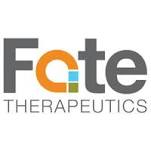
Shares of Fate Therapeutics, Inc. (NASDAQ: FATE), a clinical-stage biopharmaceutical company dedicated to the development of programmed cellular immunotherapies for patients with cancer, closed at $40.08, -5.45%.
On, Feb. 28,
Fate Therapeutics reported business highlights and financial results for the fourth quarter and full year ended December 31, 2021. Scott Wolchko, President and Chief Executive Officer of Fate Therapeutics,
“We have begun 2022 with strong clinical and regulatory momentum driving our off-the-shelf, iPSC-derived NK cell programs in relapsed / refractory lymphoma, and look forward to working with the FDA under the Regenerative Medicine Advanced Therapy designation to accelerate therapeutic development in areas of significant unmet need, such as patients who have progressed following autologous CAR T-cell therapy, and to bringing transformative cell therapies to patients in the community setting including as part of early-line treatment. We maintain a strong financial position and are poised in 2022 to achieve key clinical milestones and data read-outs across our wholly-owned disease franchises, to extend our leadership in the manufacture and CMC of iPSC-derived cell therapies with the launch of our second cGMP manufacturing facility, and to bring new multiplexed-engineered NK and T-cell product candidates to patients.”
On Jan. 10, Fate announced that the U.S. Food and Drug Administration (FDA) has cleared the Company’s Investigational New Drug (IND) application for FT536, an off-the-shelf, multiplexed-engineered, iPSC-derived, chimeric antigen receptor (CAR) NK cell product candidate. FT536 is derived from a clonal master induced pluripotent stem cell (iPSC) line engineered with four functional elements, including a novel CAR that uniquely targets the α3 domain of the major histocompatibility complex (MHC) class I related proteins A (MICA) and B (MICB). MICA and MICB are stress proteins that are expressed at high levels on many solid tumors. The Company plans to initiate clinical investigation of FT536 as a monotherapy and in combination with tumor-targeting monoclonal antibody therapy for the treatment of multiple solid tumor indications.
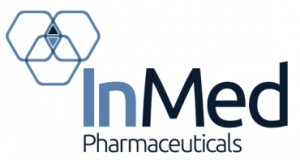
Shares of InMed Pharmaceuticals Inc. (NASDAQ: INM), a leader in the development, manufacturing and commercialization of rare cannabinoids, closed at $.929/share, -3.23%.
On March 17, InMed announced that its Chief Financial Officer, Mr. Bruce Colwill, will be retiring and will be stepping down from his position at the Company effective March 31, 2022. Mr. Colwill will continue to serve as an advisor through June 30, 2022 to facilitate a smooth transition. Ms. Brenda Edwards has been appointed as Interim Chief Financial Officer of the Company effective April 1, 2022. The Company has initiated a search for a full time replacement. Ms. Edwards brings over 35 years experience to InMed including over 20 years as a Chief Financial Officer of both private and public companies. Her experience includes merger and acquisitions, financings, managing high growth situations and financial reporting. She is a member of both the American Institute of CPAs and the Chartered Professional Accountants of Canada.
On Feb. 15, Inmed announced the appointment of Gerard (Jerry) P. Griffin III as Vice President of Sales and Marketing at BayMedica, a wholly owned subsidiary of InMed. Mr. Griffin will oversee the commercialization of BayMedica’s health and wellness business including the existing products and the launch of new rare cannabinoid products. Mr. Griffin has a wealth of experience across various markets and with numerous cannabinoid products, and a proven track record as a seasoned sales executive. He has held several senior positions at both privately and publicly held companies including Fortune 500 companies. Most recently, Mr. Griffin was the Vice President of Sales and Business Development at Creo Ingredients, a biotechnology-based ingredient company that produces rare cannabinoids. Prior to Creo, he was the President of a successful wellness company, overseeing all aspects of a business that develops and distributes cannabinoid-based products. With his extensive hands-on experience in the rapidly expanding cannabinoid industry, he brings significant real-world knowledge across the entire value chain to the Company.
On Feb. 14, InMed announced financial results for the second quarter of fiscal year 2022 which ended December 31, 2021. They highlighted that they completed the acquisition of BayMedica, a rare cannabinoid manufacturing and commercialization company in the health and wellness sector, they strengthened IP with patent filing for use of rare cannabinoids for the treatment of neurodegenerative diseases, they initiated the commercial rollout of an additional rare cannabinoid, CBT- first of several rare cannabinoid launches planned for the first half of 2022, & they advanced the pharmaceutical drug development programs in EB, glaucoma and neurodegenerative diseases.
READ THE BALANCE OF THE RELEASE.
On Jan. 19, InMed announced that it has launched B2B sales of the rare cannabinoid cannabicitran (CBT) into the health and wellness sector. CBT is the first of several new product launches planned for the first half of 2022. InMed’s subsidiary, BayMedica, has received initial purchase orders and has commenced commercial sales of the ultra-rare cannabinoid CBT. CBT is the second rare cannabinoid to be launched by BayMedica, which also sells CBC wholesale as a raw ingredient to the health and wellness sector. Additionally, commercial scale production of cannabidivarin (CBDV) is underway, with tetrahydrocannabivarin (THCV) production scheduled to follow shortly thereafter. The Company expects to produce over 100kg of CBDV and THCV in the coming months to meet anticipated initial demand. Shane Johnson, SVP and General Manager of BayMedica stated, “We are delivering on our objective to launch additional rare cannabinoids in early 2022 in response to inbound demand. By midyear, we expect to have at least four rare cannabinoids available for the health and wellness markets, positioning us as a leading large scale supplier of high quality rare cannabinoids in these sectors. The launch of CBT further demonstrates our ability to produce rare cannabinoids at commercial scale, an achievement that very few companies have been able to accomplish. We are pleased with initial demand and we expect to grow sales over the coming quarters as we continue to expand our product portfolio of rare cannabinoids.” This emerging market is expected to grow significantly due to the increasing awareness of the potential benefits of cannabinoid-based products. According to the December 2021 Grand View Research report, the retail market for rare cannabinoids is expected to reach US$26 billion by 2028 with a forecasted compounded annual growth rate (CAGR) of >20% during the same period. With the availability of these rare cannabinoids at commercial scale, product manufacturers and consumer brands now have the ability to deliver differentiated products, including augmenting existing CBD-based products, to consumers in the health and wellness marketplace.
On Jan. 6, InMed’s CEO Eric A. Adams, Shane Johnson, SVP and General Manager of BayMedica and Chris Meiering, VP of Commercial Operations, presented at Tribe Public’s Webinar Presentation and Q&A Event titled
“Addressing The Increasing Demand For Rare Cannabinoids.” On Jan. 5th, InMed issued its
Annual Letter to Shareholders from President and CEO Eric A. Adams which stated,
“Building on a very strong 2021, we are looking forward to 2022 with the continued advancement of our pharmaceutical drug development programs and, with our acquisition of BayMedica, transitioning to becoming a leading B2B supplier of rare cannabinoids to the consumer health and wellness sector. I’m very excited to provide updates on our progress as we begin to commercialize new products and explore an array of rare cannabinoids for their potential therapeutic applications.” Click here to read the letter.
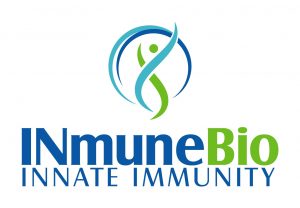
Shares of INmune Bio, Inc. (NASDAQ: INMB), a clinical-stage immunology company focused on developing treatments that harness the patient’s innate immune system to fight disease, closed at $8.20, -5.75%.
Today, April 4,
INmune Bio highlighted key findings from the NK Cells in Solid Tumors workshop. Dr. Mark Lowdell, INmune Bio’s Chief Scientific Officer (CSO), led the workshop on the role of NK cells in treatment of solid tumors during the Innate Killer Summit in San Diego (March 30 -April 1, 2022). The conference is widely viewed as one of the most important in translational NK cell immunotherapy. Two consistent themes of this year’s conference were the importance of memory-like NK cells and the poor in-vivo survival of adoptively transferred allogeneic NK cells, with or without genetic modification. Strategies to improve NK cell “fitness” and improve NK cell metabolism were at the forefront. NK cell dysfunction and poor survival in the recipient and, in particular the TME may be due to damaged mitochondria – considered the “powerplants” of the cell that are essential for survival. Dr. Lowdell observed that INKmune™, unlike IL15 and other NK-activating cytokines, simultaneously upregulates all mitochondrial survival proteins and more than 40 nutrient receptors on the NK cell. These unique changes may help INKmune-primed NK cells survive and thrive in the hypoxic immunosuppressive TME. Data from patients treated with INKmune™ have shown tumor killing memory-like NK cells present in peripheral blood and bone marrow for at least 15 weeks after INKmune™ therapy and provoked a lot of discussion about whether INKmune™ can be used in combination with adoptive NK therapies to sustain the memory-like phenotype and increase survival.
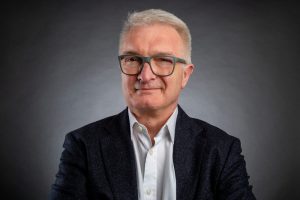
Dr. Lowdell, CSO of INmune Bio stated, “For NK cells to become relevant in the treatment of solid tumors, several problems must be solved. At the workshop, we presented how INKmune™, INmune Bio’s NK cell therapeutic, may solve these problems as demonstrated by published and unpublished pre-clinical and clinical data from the INKmune™ Phase I trial in high-risk MDS. A common therapeutic strategy is giving ex vivo-activated NK cells from peripheral blood which are conditioned to normal oxygen levels. Hoping that these cells track to the tumor and aren’t inhibited by the hypoxic, immunosuppressive TME does not align with our understanding of tumor biology in patients. Activation of tumor-resident NK cells in vivo is likely to be important for patient treatment and tumor-activated NK cells seem to be better than cytokine-primed NK cells in surviving the hostile hypoxic and immunosuppressive environment of the TME. As far as we know, INKmune™ is the only agent which can give the pleiotropic NK activating signals that improve NK function in the hostile immunosuppressive and hypoxic environment of the TME. I came away from this meeting even more convinced that INKmune™ can have a major impact in current and future NK immunotherapies in hematological and solid tumors and with a list of potential new collaborators for our future trials.”
Since the last Innate Killer Summit, INmune has treated three patients with INKmune™ The first MDS patient, a 74-year-old man, remains stable 9 months after therapy. Updated results at the lowest dose cohort of INKmune treatment at day 119 show: NO side effects – NO evidence of alloresponse to INKmune™, Evidence of disease control and maintenance of MRD after 3 doses, Improved BM function – No G-CSF / Platelet independent, Improved ECOG score from 2 to 0, Production of tumor killing memory like NK cells., & Persistence of activated NK cells in blood to Day 119 at least. The company also reported that a 21-year-old female with relapsed AML and mixed chimerism after stem cell transplant reestablished 100% donor chimerism after INKmune™ therapy. She remains under close observation as an out-patient more than 6 months after INKmune™ therapy. The third patient, a young man with AML who failed two transplants remains desperately ill. “The Innate Killer Summit is the best place to share our data and discuss our pre-clinical and clinical results with the community of scientists developing NK-based immunotherapies”, added Dr Lowdell.
On March 25,
INMB announced reviews findings from data presented at AD/PD™ 2022 – International Conference on Alzheimer’s and Parkinson’s diseases. The AD/PD™ 2022 International Conference was from March 15-20 in Barcelona, Spain.
“The field of AD is changing rapidly as treatments beyond amyloid and tau are explored. Targeting neuroinflammation, the use of biomarkers, and novel clinical trial designs are changing the way drugs are developed for this challenging disease,” said R.J. Tesi, INMB’s CEO.
“In my opinion, there are three key observations that put the nine presentations by INmune Bio in perspective. We remain convinced that targeting glial activation with Xpro™ is a smart strategy.”
On March 23, eight Form 4’s were filed representing a significant increase in insider buying in INMB’s stock. Please see filings at the direct link at
sec.gov.
On March 15, INmune Bio announced nine pieces of data, including oral symposia, would be presented at AD/PD™ 2022 – International Conference on Alzheimer’s and Parkinson’s diseases. The AD/PD™ 2022 International Conference is being held from March 15-20 in Barcelona, Spain. Raymond J. Tesi, Ph.D, Chief Executive Officer of INmune Bio, commented,
“This is the first time many clinician teams in Europe and UK have been exposed to XPro™ and INmune Bio’s approach to treatment of Alzheimer’s Disease,” said RJ Tesi.
“These nine presentations show the versatility of XProTM and the importance of neuroinflammation in the pathogenesis of neurodegenerative disease. The presentations provide a great overview of XPro™ for the treatment of AD, introducing the novel biomarkers INmune is using, and how the results of the Phase I trial provided insight into the design the Phase II trials in mild cognitive impairment and Mild Alzheimer’s.” LEARN MORE HERE.
On March 3,
INmune Bio reported its financial results for the year ended December 31, 2021 and provided a business update. INmune Bio highlighted that in December, the Company reported data from the first patient treated with INKmuneTM in the myelodysplastic syndrome (MDS) Phase I clinical trial. More than 100 days after the course of INKmuneTM therapy, 60% of the patient’s NK cells showed the activated, tumor killing memory like NK cells phenotype, a fourfold increase from pre-treatment. The patient’s memory like NK cells killed >70% of NK resistant tumor cells in an in vitro assay. The patient remains well and with an ECOG status of 0, a two-point drop from pre-treatment. Additionally, two patients were treated with INKmuneTM under compassionate use after having failed at least one allogeneic bone marrow transplant. One of the two patients has been discharged home, one remains hospitalized. In all cases, INKmuneTM therapy was well tolerated, safe and was given without any type of pre-medication or cytokine therapy. “These patients demonstrate the unique attributes of INKmuneTM therapy in patients with high-risk MDS/AML. INKmuneTM converted the patient’s resting NK cells into cancer killing memory like NK cells. The memory like NK cells killed NK-resistant cancer cells in an in vitro assay. Both these attributes lasted four months, a trait we are calling therapeutic persistence.” stated RJ Tesi, M.D., Chief Executive Officer of INmune Bio. “We are continuing to screen patients for enrollment into the trial and are in process of expanding the number of clinical trial sites.”
On Jan. 25, INmune announced that the company has entered into a pre-clinical research collaboration with Chinese University of Hong Kong (CUHK) to evaluate INKmune™ — the company’s pseudokine NK cell priming platform — in nasopharyngeal cancer (NPC), a type of head and neck cancer. The Strategic Partnership Award for Research Collaboration, which was granted by the CUHK Office of Academic Links, is between Prof. Michael Tong at CUHK and Prof. Mark Lowdell at University College London (UCL) and Chief Scientific Officer of INMB. The project provides INMB scientists working at UCL with access to the only three proven NPC cancer cell lines to test the ability of INKmune-primed NK cells to kill NPC tumors.
Prof. Lowdell stated, “Our colleagues at CUHK have been studying NK cell responses to NPC for many years but have not yet translated them into clinical trials. They have shown the need for cytokine activation with IL2 or IL15 to achieve tumor killing. We believe pseudokine activation by INKmune will provide all the relevant NK activating signals of IL2 and IL15 plus a host of other critical NK survival signals and generate memory-like NK cells. We are confident that these INKmune primed cells will kill NPC tumor cells very effectively and we look forward to a mutually beneficial collaboration.”
RJ Tesi, INmune Bio’s Chief Executive Officer stated, “Over 180,000 cases of NPC were diagnosed last year with 85% originating in Asia. Current treatments are quite poor, leading to high mortality rates. History of EBV infection (commonly known as mono) and genetic polymorphisms drive the incidence of the disease. This peer-reviewed grant and international collaboration targeting what has historically been a difficult to treat solid tumor validates the versatility of INKmune. We look forward to translating this work to the clinic in the near future.”
Shares of INVO Bioscience, Inc. (NASDAQ: INVO), a commercial-stage fertility company focused on expanding access to advanced treatment worldwide with its INVOcell® medical device and the IVC procedure it enables, closed at $2.40 & has traded up to $2.78, +15.38% in aftermarket trading.
- Regained full U.S. commercialization rights to sell its INVOcell® solution directly into existing in vitro fertilization (IVF) clinics, to expand the number of U.S. INVO Centers free of any limitations, and to pursue its market expansion strategy focused on increasing access to care and democratizing fertility care for the underserved patient population.
- Opened three INVO Center’s in 2021, including Birmingham, Alabama, Atlanta, Georgia, and Monterrey, Mexico with another clinic scheduled to open in the San Francisco area. The Company recently identified Tampa, Florida as the location of the next INVO Center.
- Entered into an agreement with Ovo in Spain to expand INVOcell® commercialization in all four of their Ovoclinics, establish a European center of excellence and training site for INVOcell® and the IVC procedure, and leverage Ovobank’s fertility clinic relationships across Europe.
- Completed the acquisition of a Canadian-based entity, originally formed to offer INVOcell®, to advance distribution efforts in Canada, where the product is already approved by Health Canada and cleared for importing.
- Obtained regulatory approval to commercialize INVOcell® in Thailand and Nigeria.
- Presented four poster abstracts discussing INVOcell® at the 77th Scientific Congress & Expo of the American Society for Reproductive Medicine held in Baltimore, Maryland in October 2021.
- Revenue was $4.2 million for the year ended December 31, 2021, including $2.9 million due to the accelerated recognition of deferred revenue from the Ferring license, and compared to $1.0 million for the previous year.
- Adjusted EBITDA for 2021 was $(2.8) million, which included a $0.7 million loss attributable to the Company’s joint ventures, compared to $(3.7) million in the prior year (see Adjusted EBITDA Table).
Steve Shum, CEO of INVO stated, “2021 was an exciting year for INVO as we opened our first INVO Center clinics. Our INVO Center model represents a strategy aimed at expanding adoption of INVOcell® and allowing us to capture a significantly larger percentage of the per-cycle IVC procedure revenue it enables. The INVO Centers are designed to offer attractive economics for our shareholders, medical practitioner partners and patients, and we believe are key to our efforts to address the fertility industry’s biggest challenges of cost and capacity. In addition to our announced plans to open additional centers in the San Francisco Bay Area and Tampa, Florida, we are evaluating over 20 additional US locations which represent attractive opportunities to open new INVO Centers. We also are in discussions for similar ventures across the globe. On the distribution side of our business, during the first quarter of 2022, we began selling directly to existing IVF fertility clinics in the U.S., after regaining full domestic commercialization rights to the INVOcell® upon termination of our prior agreements with Ferring. We are also seeing increased distribution activity from some of our partners in Europe and Africa. We are enthusiastic about our multi-channel strategy of supporting, servicing, and expanding across existing IVF clinic networks and building new, dedicated INVO Centers. We expect this strategy to drive increased market awareness and utilization of our revolutionary technology, and provide an affordable and equally effective fertility treatment alternative to the large, underserved patient population.”
INVO Bioscience recently exhibited the INVOcell solution at the 2022 Pacific Coast Reproductive Society (PCRS) Annual Meeting that took place March 23-27 at the Renaissance Esmeralda Resort & Spa in Indian Wells, CA. Chris Myer, INVO’s Senior VP, Business Development, Americas, and Bojan (Bo) Mitrovic, PhD, INVO’s Director, Sales, US both were available in Booth #314 discussing INVOcell with the broader Assisted Reproductive Technology (ART) physician community.
Steve Shum, CEO of INVO Bioscience, commented, “A key component to our go forward commercialization strategy is to synchronize and take an expanded, more comprehensive and direct approach toward our U.S. efforts. PCRS provides us an opportunity to easily connect with a number of U.S. IVF clinics that have already trained on the INVOcell device and the IVC treatment process, as well as introduce our solution to additional clinic operators interested in expanding their treatment options and overall capacity by introducing INVOcell to patients.” Pacific Coast Reproductive Society is a multidisciplinary medical specialty society providing Continuing Medical Education (CME) to physicians and allied healthcare professionals. The PCRS Annual Meeting provides an outstanding forum for the exchange of information and the advancement of the ideologies of reproductive medicine in a relaxed and collegial setting. Session topics have been carefully selected to bring you the highest quality, innovative CME, designed and presented by thought leaders in reproductive medicine.
On January 19, Maxim Group’s sell side analyst Jason McCarthy, Ph.D. initiated coverage with a Buy Rating Report titled “INVO Bioscience: Transforming Assisted Reproductive Technology with Intravaginal Culture” with a $7 Price Target.
Shares of NeuBase Therapeutics (NASDAQ: NBSE), a biotechnology platform company Drugging the Genome™ to address disease at the base level using a new class of precision genetic medicines, closed at $1.92, -.52%. The 52-wk range is $1.21-$7.14.
On March 16 and March 17, recently appointed Neubase CFO, Todd Branning (Jan. 10 , 2022), purchased 10,000 shares of NBSE stock each day for a total of 20,000 shares at $1.62/share and $1.74/share respectively. Here’s the
Form 4 filing at the SEC. Mr. Branning has more than 25 years of experience leading corporate finance and accounting, tax, financial planning and analysis, and investor relations for several publicly traded pharmaceutical companies. Prior to joining NeuBase, Mr. Branning was CFO of Phathom Pharmaceuticals, Inc., a publicly traded late clinical-stage biopharmaceutical company. Before that, he was Senior Vice President, CFO of Amneal Pharmaceuticals, Inc., a publicly traded pharmaceutical company, where he helped to build, leverage, and optimize infrastructure following the completion of a transformational merger. Prior to joining Amneal, he was Senior Vice President, CFO of the global generic medicines division at Teva Pharmaceutical Industries Ltd., a multinational generic pharmaceuticals company, where he led the finance function and served on the leadership team responsible for managing the day-to-day operations of Teva’s largest multi-billion-dollar commercial unit. Mr. Branning has also held financial leadership roles at Allergan plc, PricewaterhouseCoopers LLP, PPG Industries, Inc., and Merck & Co., Inc. Mr. Branning received his BBA from the University of Miami and MBA from Carnegie Mellon University. Mr. Branning is also a Certified Public Accountant and has completed a CFO certification program at The Wharton School at the University of Pennsylvania.
On March 13, Neubase announced new preclinical data for its lead development candidate, NT-0231.F, to treat myotonic dystrophy type 1 (DM1). These data are being presented in poster and oral presentations at the 2022 MDA Clinical & Scientific Conference, which is taking place virtually and in-person in Nashville, Tennessee from March 13-16, 2022. These data was presented at the RNA Leaders World Congress in Basel on March 17th.
Sandra Rojas-Caro, M.D., Chief Medical Officer of NeuBase, said, “DM1 is a significant unmet medical need characterized by myotonia, muscle weakness and wasting, and cognitive impairments. We are excited to present new preclinical data for our lead candidate, NT-0231.F, to support our differentiated approach for DM1. Systemic administration of NT-0231.F achieves clinically relevant molecular and functional rescue in the muscle in the HSALR model, which reproduces many components of the disease. Initial pharmacokinetic data supports a whole-body solution to the disease, and additional preclinical work is in progress to assess biodistribution in key tissues. These data are an important milestone in our DM1 development program and support our pursuit of a best-in-class therapeutic profile for the disease.”
A single intramuscular dose confirmed that NT-0231.F is pharmacologically active in the muscle and drives molecular and functional rescue in the HSALR model, including splice rescue, nuclear aggregate resolution, and myotonia (delayed muscle relaxation after contraction) reversal. A single intravenous (IV) dose of NT-0231.F or multiple subcutaneous (SC) doses over a 28-day period broadly rescued splicing, including the chloride channel (Clcn1) transcript, and reversed myotonia in the model. A single IV dose of NT-0231.F provides initial splice rescue at around two weeks, with significant splice rescue around three weeks. Myotonia reversal was achieved at around four weeks, with effects enduring to at least six weeks, the longest time point tested so far. A time course of multiple SC doses across increasing concentrations of NT-0231.F was also investigated and showed splice rescue and myotonia reversal in a dose-responsive manner, illustrating feasibility of the differentiated and patient-friendly SC route. In pharmacokinetic studies of NT-0231.F in wild-type BALB/C mice, a single IV or SC dose showed high volume of distribution, suggesting wide tissue distribution.
Dietrich A. Stephan, Ph.D., Founder, Chief Executive Officer, and Chairman of NeuBase, said, “We now have preclinical data in the gold-standard animal model for our development candidate demonstrating robust reversal of myotonia, as measured by muscle relaxation in these studies. We believe we are the only company that has shown improved muscle relaxation after systemic routes of administration. The HSALR model is also a high bar for human disease in that it contains at least 10x more mutant gene CUG- repeat targets than patients, giving us further conviction in the robustness of our approach. Not only does this data support the further advancement of our lead program in DM1 and keep us on track for submitting an Investigational New Drug application to the U.S. Food and Drug Administration in 4Q CY2022, it also validates that we can utilize our PATrOLTM platform to design novel genetic medicines that target and rescue many other gene dysfunctions, with the potential for clinically impactful outcomes in both rare and common diseases.”
On Jan. 5, Neubase announced the appointment of Eric J. Ende, M.D., to the Company’s Board of Directors. Dr. Ende has nearly 25 years of experience in advising biotechnology and life sciences companies to optimize corporate strategy and structure and maximize shareholder value. “Dr. Ende has the experience and perspective to recognize the opportunity ahead for NeuBase as it plans for the clinical development of its potentially transformational new class of precision genetic medicines,” said Dietrich A. Stephan, Ph.D., Founder, CEO and Chairman of NeuBase. “We welcome Dr. Ende’s strategic insight as we begin to scale our therapeutic candidate pipeline from our new precision genetic medicines platform technology. In addition to his broad experience, he also shares in our Company’s goal of helping millions of patients with both common and rare conditions that currently have limited or no treatment options.” “I believe NeuBase has a game-changing technology that overcomes the limitations of early precision genetic medicines by delivering mutation selectivity, repeat dosing, and systemic administration in a modular precision medicine platform with the potential to efficiently scale to treat a wide variety of diseases that are currently undruggable,” said Dr. Ende. “I look forward to working closely with NeuBase’s leadership team and Board of Directors to elevate strategy and operations in order to create exceptional value for patients and shareholders.” Dr. Ende currently is the President of Ende BioMedical Consulting Group. He also is a member of the Board of Directors of Matinas BioPharma, where he is the Chairman of the Compensation Committee and serves on the Audit and the Nomination & Governance Committees, and of Avadel plc, where he is the Chairman of the Nomination & Corporate Governance Committee and serves on the Audit and Compensation Committees. Dr. Ende previously served on the Board of Directors of Progenics (acquired by Lantheus Holdings) and Genzyme (acquired by Sanofi-Aventis for $20 billion). During his time on Genzyme’s Board of Directors, Dr. Ende was a member of the Audit and Risk Management Committees. Prior to Genzyme, Dr. Ende was a biotechnology analyst, previously serving at Merrill Lynch, BofA Securities, and Lehman Brothers. Dr. Ende received an M.B.A. from NYU Stern School of Business, an M.D. from the Icahn School of Medicine at Mount Sinai, and a B.S. in biology and psychology from Emory University.








